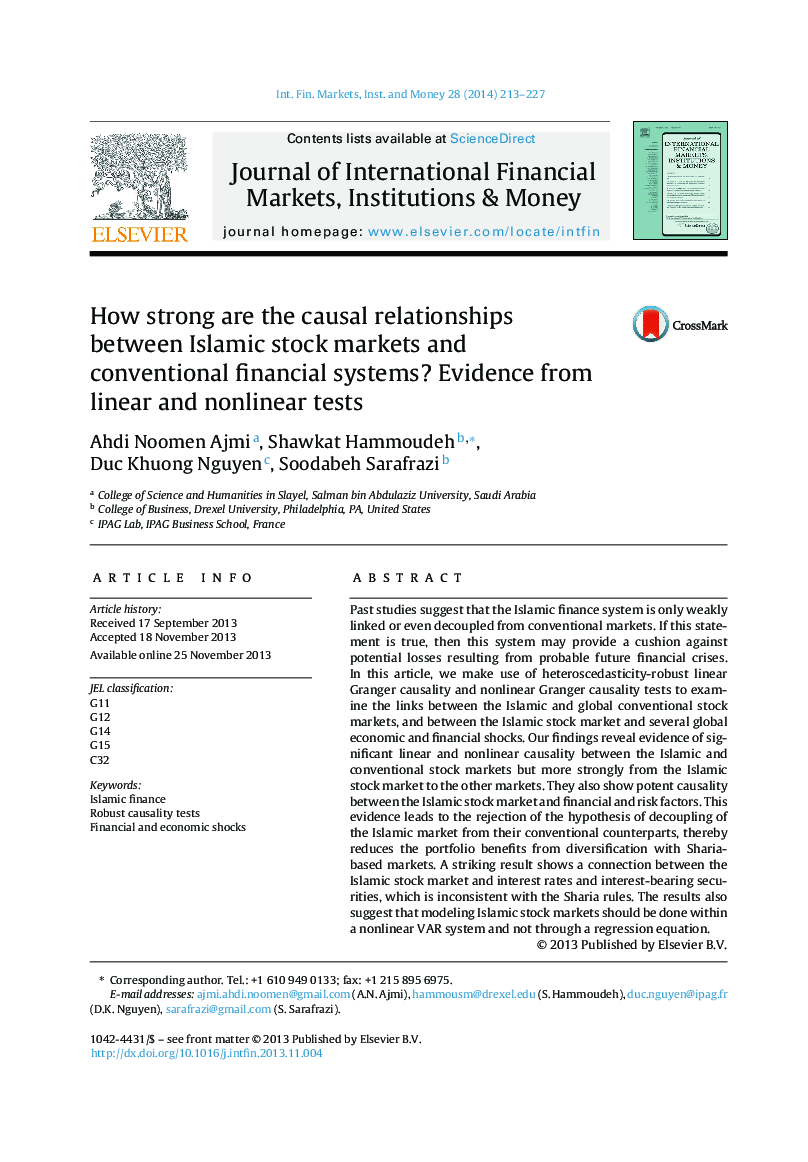| Article ID | Journal | Published Year | Pages | File Type |
|---|---|---|---|---|
| 963996 | Journal of International Financial Markets, Institutions and Money | 2014 | 15 Pages |
Abstract
Past studies suggest that the Islamic finance system is only weakly linked or even decoupled from conventional markets. If this statement is true, then this system may provide a cushion against potential losses resulting from probable future financial crises. In this article, we make use of heteroscedasticity-robust linear Granger causality and nonlinear Granger causality tests to examine the links between the Islamic and global conventional stock markets, and between the Islamic stock market and several global economic and financial shocks. Our findings reveal evidence of significant linear and nonlinear causality between the Islamic and conventional stock markets but more strongly from the Islamic stock market to the other markets. They also show potent causality between the Islamic stock market and financial and risk factors. This evidence leads to the rejection of the hypothesis of decoupling of the Islamic market from their conventional counterparts, thereby reduces the portfolio benefits from diversification with Sharia-based markets. A striking result shows a connection between the Islamic stock market and interest rates and interest-bearing securities, which is inconsistent with the Sharia rules. The results also suggest that modeling Islamic stock markets should be done within a nonlinear VAR system and not through a regression equation.
Keywords
Related Topics
Social Sciences and Humanities
Economics, Econometrics and Finance
Economics and Econometrics
Authors
Ahdi Noomen Ajmi, Shawkat Hammoudeh, Duc Khuong Nguyen, Soodabeh Sarafrazi,
